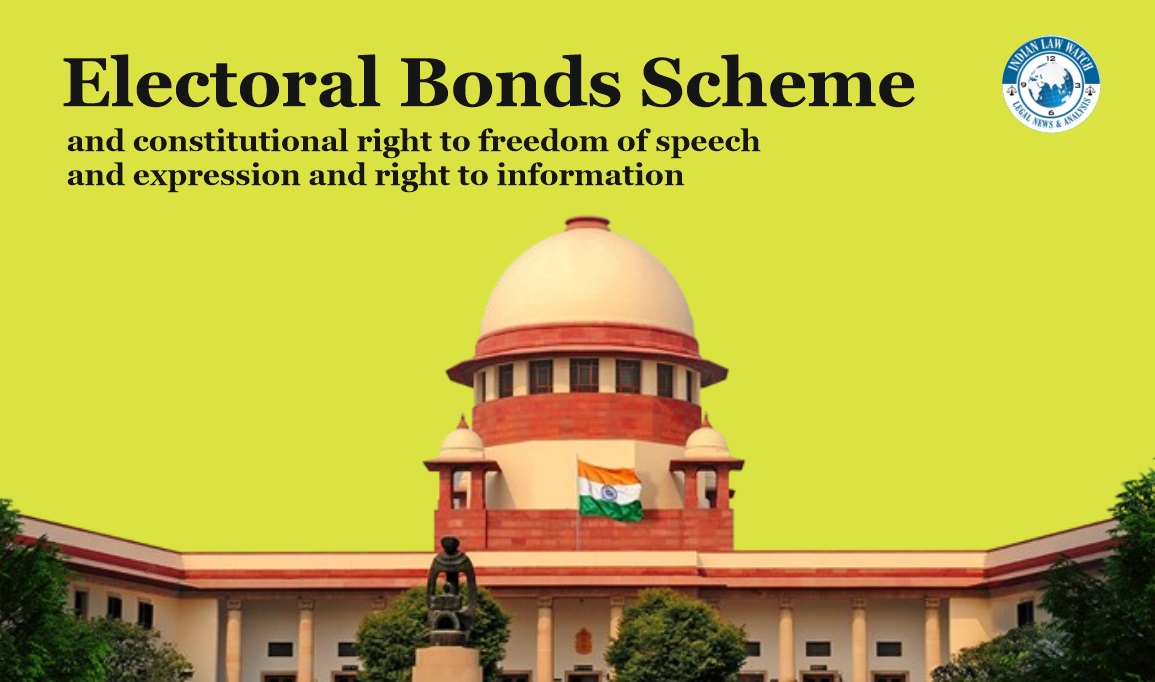

Under the electoral bonds scheme, ruling parties can coerce people and entities to contribute, the apex court said and rejected as ‘errorneous’ the Centre’s argument that it protects confidentiality of the contributor which is akin to the system of secret ballot
In a landmark verdict delivered within spitting distance of the Lok Sabha polls, the Supreme Court on Thursday scrapped the Modi government’s electoral bonds scheme of anonymous political funding, terming it “unconstitutional” and ordering disclosure of the names of the purchasers, value of the bonds and their recipients.
Holding that the 2018 scheme was “violative” of the constitutional right to freedom of speech and expression and right to information, a five-judge constitution bench headed by Chief Justice D Y Chandrachud did not agree with the Centre’s contention that it was meant to bring about transparency and curb black money in political funding.
Ordering closure of the scheme forthwith, the top court also directed the State Bank of India, the authorised financial institution under the scheme, to submit by March 6 the details of electoral bonds purchased since April 12, 2019 till date to the Election Commission, which will publish the information on its official website by March 13.

-
Under the electoral bonds scheme, ruling parties can coerce people and entities to contribute, the apex court said and rejected as “errorneous” the Centre’s argument that it protects confidentiality of the contributor which is akin to the system of secret ballot.
-
“The electoral bond scheme and the impugned provisions to the extent that they infringe upon the right to information of the voter by anonymizing contributions through electoral bonds are violative of Article 19(1)(a) (freedom of speech and expression) of the Constitution,” said the bench, also comprising Justices Sanjiv Khanna, B R Gavai, J B Pardiwala and Manoj Misra, in its verdict delivered months ahead of the Lok Sabha polls. The Lok Sabha polls are likely in April-May this year.
-
In its two separate but unanimous verdicts cumulatively spanning 232 pages, the top court also directed the SBI to share details, including the “date of purchase of each electoral bond, the name of the purchaser of the bond and the denomination of the electoral bond purchased”.
-
“SBI shall submit the details of political parties which have received contributions through electoral bonds since the interim order of this court dated April 12, 2019 till date to the ECI. SBI must disclose details of each electoral bond encashed by political parties which shall include the date of encashment and the denomination of the electoral bond,” the bench said.
-
Uncashed electoral bonds, which are within the validity period of 15 days, shall be returned by the political party or the purchaser to the issuing bank which in turn shall refund the amount to the purchaser’s account.
-
The judgement referred to the annual audit reports of political parties from 2017-18 to 2022-23 which showed party-wise donations received through such bonds. The BJP received Rs 6,566.11 crore during this period, while the Congress got Rs 1,123.3 crore. The TMC received in its kitty Rs 1,092.98 crore during the same period.
-
The CJI, who authored a 152-page judgement for himself and on behalf of Justices Gavai, Pardiwala and Misra, said, “The electoral bond scheme, the proviso to section 29C(1) of the Representation of the People Act 1951 (as amended by section 137 of Finance Act 2017), section 182(3) of the Companies Act (as amended by section 154 of the Finance Act 2017), and section 13A(b) (as amended by section 11 of Finance Act 2017) are violative of Article 19(1)(a) and unconstitutional.” It said the deletion of a provision in the Companies Act permitting unlimited corporate contributions to political parties was “arbitrary and violative” of Article 14 (right to equality) of the Constitution.
-
Holding that information about funding to a political party was essential for a voter to exercise their freedom to vote in an effective manner, the bench said the scheme does not fulfil the least restrictive means test.
-
“The electoral bond scheme is not the only means for curbing black money in electoral finance. There are other alternatives which substantially fulfill the purpose and impact the right to information minimally when compared to the impact of electoral bonds on the right to information,” the CJI said.
-
The bench said integrity of the election process is pivotal for sustaining the democratic form of government and the Constitution also places the conduct of free and fair elections on a high pedestal.
-
The verdict said financial contributions to political parties are usually made for two reasons — they may constitute an expression of support to the political party or the contribution may be based on a “quid pro quo”.
-
“The huge political contributions made by corporations and companies should not be allowed to conceal the reason for financial contributions made by another section of the population: a student, a daily wage worker, an artist, or a teacher. When the law permits political contributions and such contributions could be made as an expression of political support which would indicate the political affiliation of a person, it is the duty of the Constitution to protect them,” it said.
-
It said not all political contributions are made with the intent of attempting to alter public policy and contributions are also made to political parties which are not substantially represented in legislatures.


Source: Telegraph India





